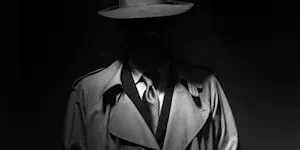What Makes This Word Tick
"Destitute" evokes images of someone lacking life's basic necessities. It conveys an intense absence, whether that's of money, resources, or opportunities. It doesn't beat around the bush—if you're destitute, life’s essentials are just out of reach.
If Destitute Were a Person…
Imagine "Destitute" as a weary traveler, worn shoes, and tattered clothes, trudging down a barren road. Yet there's a resilient spark in those eyes—a determination to keep going, despite everything.
How This Word Has Changed Over Time
In the 14th century, "destitute" had more to do with being forsaken or abandoned. Over time, it gravitated toward its modern financial meaning, but echoes of that original sense of abandonment still resonate.
Old Sayings and Proverbs That Use Destitute
There's an old saying, "Desperate times call for desperate measures," which often circles the gravity of being destitute. While not using the word directly, it speaks to the lengths one might go to when resources are scant.
Surprising Facts About Destitute
The word is often paired with discussions on societal issues like poverty. What’s intriguing is how "destitute" has been used metaphorically across art and literature to describe an emptiness or void beyond financial aspects.
Out and About With This Word
If you walk through city areas where homelessness is visible, or when watching news reports on economic tragedies, you’ll often find "destitute" painting the stark realities. It’s a word that appears where empathy is most needed.
Pop Culture Moments Where Destitute Was Used
In the film "The Pursuit of Happyness," the protagonist's journey from being destitute to successful is both heart-wrenching and inspiring. The word aptly captures the starting point of his climb to better days.
The Word in Literature
Authors use "destitute" to articulate the severity of a character's plight. In Charles Dickens's works, for instance, characters often face destitution, illustrating the grim realities of Victorian England with stark vividness.
Moments in History with Destitute
The Great Depression resonates with the spirit of "destitute," capturing the collective financial hardship faced by millions. It underscores the profound struggle and societal changes sparked by such desperate circumstances.
This Word Around the World
Globally, the interpretation of "destitute" can vary. In some cultures, it might emphasize the social safety nets and community support, where destitution is mitigated by collective effort and cultural values.
Where Does It Come From?
"Destitute" finds its roots in the Latin "destitutus," meaning "to abandon" or "forsake." It perfectly embodies the desolation felt when left without support.
How People Misuse This Word
It's easy to confuse "destitute" with general poverty, but destitute implies a more drastic condition—where survival itself becomes the focus, not just financial instability.
Words It’s Often Confused With
Impoverished: While similar, being destitute is more extreme.
Poor: A broader term, doesn't always capture the severity.
Needy: Can imply specific needs, but not total lack.
Additional Synonyms and Antonyms
Synonyms include "penniless," "impoverished," and "bereft." Antonyms are "wealthy," "affluent," and "prosperous."
Want to Try It Out in a Sentence?
"After losing his job and home in quick succession, George found himself completely destitute, relying on the kindness of strangers to get by."
















